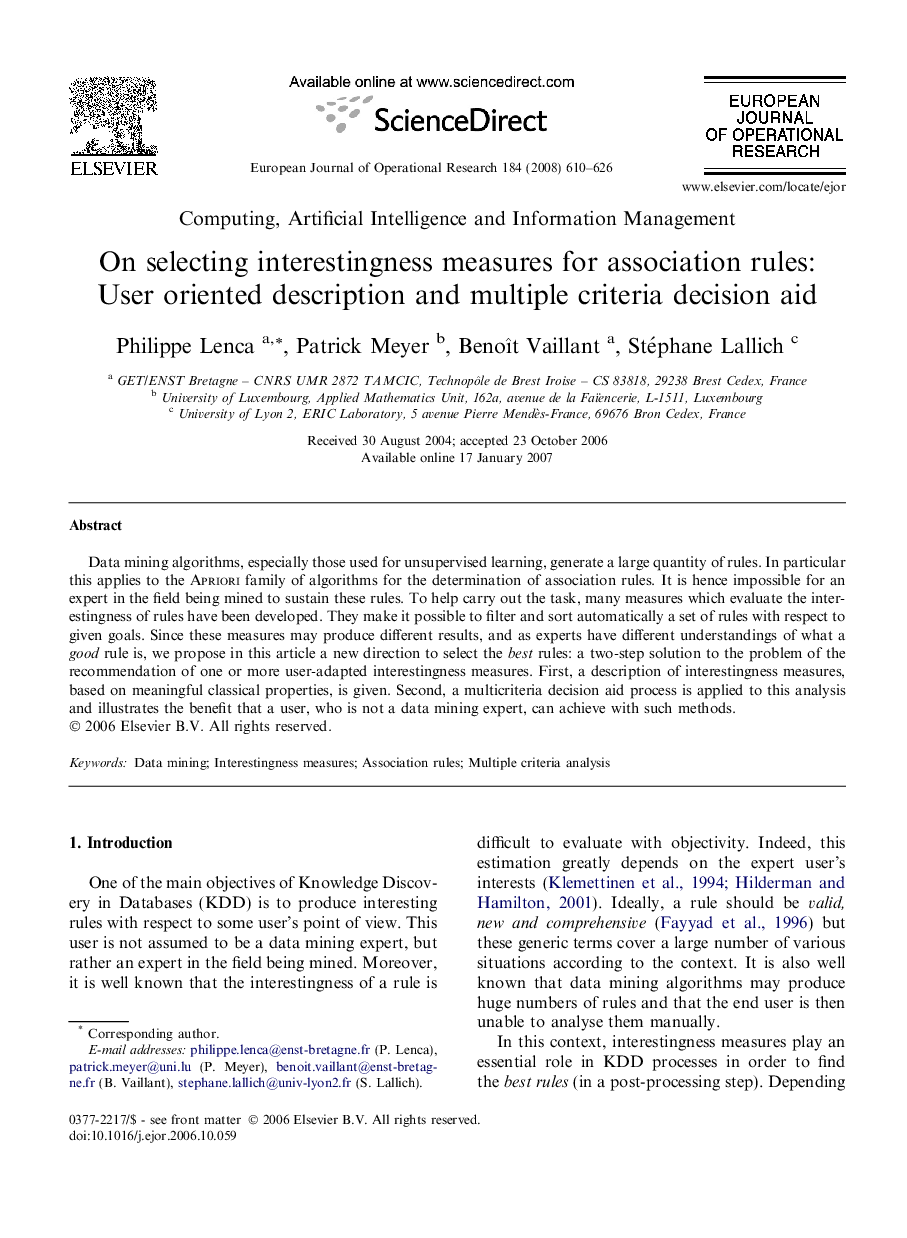| Article ID | Journal | Published Year | Pages | File Type |
|---|---|---|---|---|
| 478941 | European Journal of Operational Research | 2008 | 17 Pages |
Data mining algorithms, especially those used for unsupervised learning, generate a large quantity of rules. In particular this applies to the Apriori family of algorithms for the determination of association rules. It is hence impossible for an expert in the field being mined to sustain these rules. To help carry out the task, many measures which evaluate the interestingness of rules have been developed. They make it possible to filter and sort automatically a set of rules with respect to given goals. Since these measures may produce different results, and as experts have different understandings of what a good rule is, we propose in this article a new direction to select the best rules: a two-step solution to the problem of the recommendation of one or more user-adapted interestingness measures. First, a description of interestingness measures, based on meaningful classical properties, is given. Second, a multicriteria decision aid process is applied to this analysis and illustrates the benefit that a user, who is not a data mining expert, can achieve with such methods.
